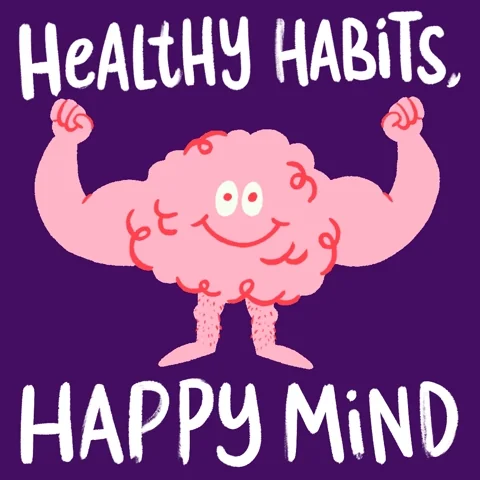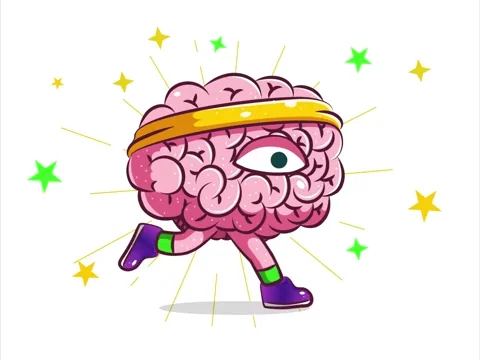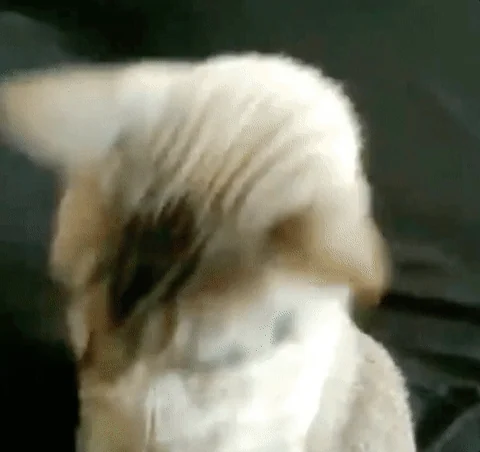Did you know that about 43% of what we do every day is just habit?
That means almost half of your school day runs on autopilot — like brushing your teeth, unlocking your phone, or walking to class without even thinking!
Now imagine this...
Your teacher reminds the class about a big project due next week. You forgot all about it. Your notes are messy, and you haven’t even started. Stress kicks in. 😩

Or...
You hear the same reminder, but this time you remember the deadline, your notes are organized, and you’ve already made progress. You feel calm and ready. 😉

What’s changed? Just a few smart habits.
That's the power of habit building. When you build simple routines — how you manage time, study, and focus — school becomes less stressful and way more manageable. And the more you practice these habits, the more they help you succeed at school.
Organization Habits 📚
Staying organized gives you a head start every day. You waste less time searching for stuff and avoid last-minute stress.

Build habits to stay organized:
Pack your bag the night before. Everything you need is ready to go, so mornings become smooth instead of chaotic.
Create a study spot. A tidy desk or a corner in your room tells your brain, “this is where I focus.”
Color-code or label your notes. This makes it easier to find what you need — and helps you spot key points when it’s time to revise.
Habit formation tip 💡
Link a new habit to something you already do (aka "habit stacking") — like packing your bag right after brushing your teeth.
Quick Quiz!
Which of these are smart organization habits?
A. Writing assignments and deadlines in a planner
B. Keeping digital files in clearly labeled folders
C. Putting your homework in the same spot every day
D. Tossing loose papers into your backpack without looking
Quiz
Which of these are good examples of organization habits? Select all that apply:
Study Habits 📖
Studying doesn’t mean sitting for hours. Breaking it into small, regular chunks makes it much easier — and helps you remember more.

Build habits to study in chunks:
Review a little every day. Spend 10–15 minutes going over what you learned in class. Small reviews add up and save you from cramming.
Set mini-goals. Instead of “I need to study the whole chapter,” try “I’ll finish 5 practice problems” or “I’ll read 2 pages.”
Use the Pomodoro Technique: It’s a time management method that breaks work into short sessions with regular breaks in between. For example: Study for 25 minutes, then take a 5-minute break. After four rounds, take a longer break. It helps avoid burnout and keeps your brain alert.
Focus & Wellness Habits 🧠💧
Difficult exams, long assignments, and endless deadlines can be stressful and tiring. You can't build strong habits if you're running on empty. Take care of yourself to stay sharp.

Build habits for your well-being:
Get 7–9 hours of sleep. Sleep helps with memory, focus, and mood.
Drink water throughout the day. Being even a little dehydrated can mess with your focus.
Take short movement breaks. Stretch, walk, or do a few jumping jacks between study sessions.
Avoid multitasking. Focus on one thing at a time. Scrolling while studying doesn’t help!
Habit formation tip 💡
Use a reminder or alarm to signal when it’s time to take a break, drink water, or wind down for bed.
Social/Help-Seeking Habits 🤝
Successful students don’t do it all alone — they build support systems.

Build habits for support:
Ask questions in class. If you're confused, chances are others are too.
Study with a buddy or group. Explaining things to each other helps you understand better.
Check in with your teachers. A quick question after class can save you hours of confusion later.
Talk about how you're feeling. If you’re stressed or stuck, talk to a teacher, counselor, or a trusted adult.
Habit formation tip 💡
Set aside 5 minutes at the end of the week to ask yourself, "What do I need help with right now?" Write the answers down.
Building Habits that Stick 🔁
Habit formation is easy, but keeping habits going takes strategy.

Build habits that last:
Start small. A 5-minute habit is easier to build than a 1-hour one.
Stack habits. Add a new habit to something you already do (like reviewing notes right after dinner).
Track your progress. Use a habit tracker or calendar to see your streak. For example, apps like Streaks, Loop Habit Tracker, and even Google Calendar can help you keep track of your habits and important deadlines.
Be kind to yourself: If you miss a day, no big deal. Just start again the next day.
Remember: consistency beats perfection. 💡
Quiz Time: Help Maya Level Up Her School Game! 🎯
Maya feels like her school life is all over the place. She forgets deadlines, her notes are a mess, she scrolls on her phone while studying, and she's too shy to ask questions. She could use some successful habit building strategies.

Which of these smart habits could help Maya succeed?
A. Study in a space where only school work is allowed, away from her phone.
B. Keep a notebook for questions and check with a teacher or friend.
C. Use a planner to track daily goals and check them off as she goes.
D. Work in short, focused blocks with breaks in between.
Quiz
Select all habits that could help Maya succeed at school:
Take Action
Now let's put what you’ve learned into action and practice building successful habits at school.
Remember: every big achievement starts with small daily habits. Start simple, stay consistent, and remember — you’re shaping your future self, one day at a time.

Your feedback matters to us.
This Byte helped me better understand the topic.
